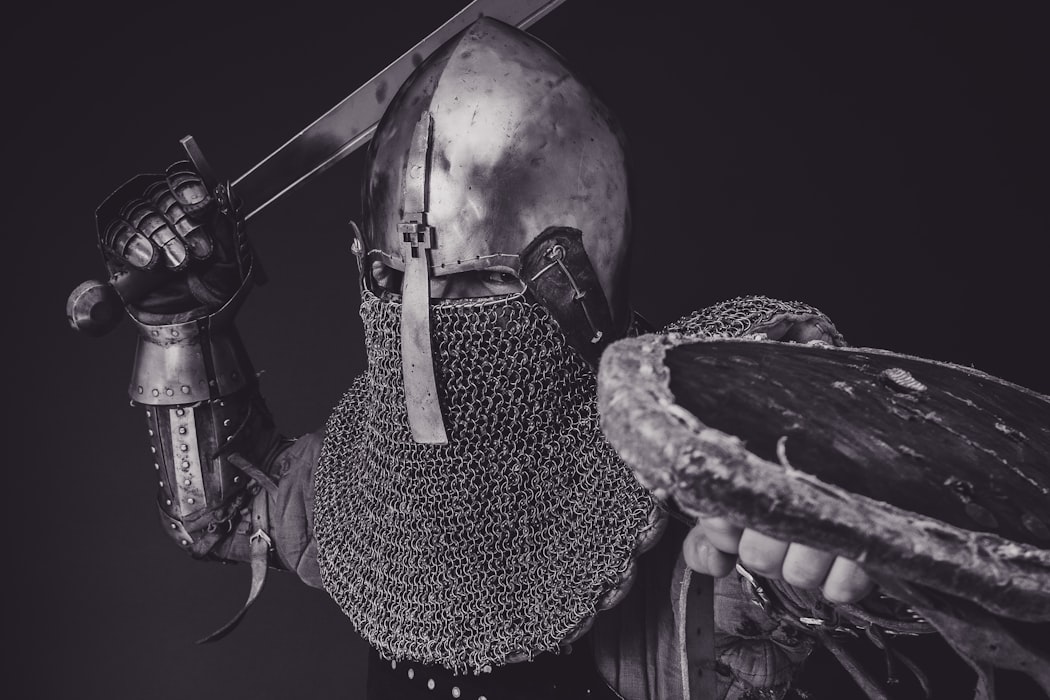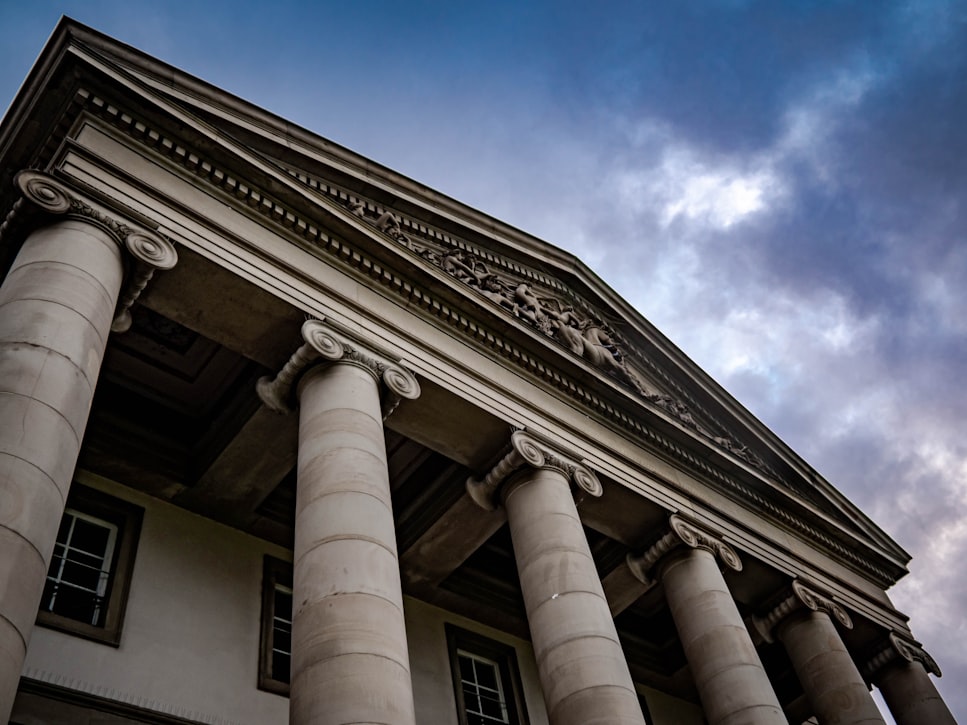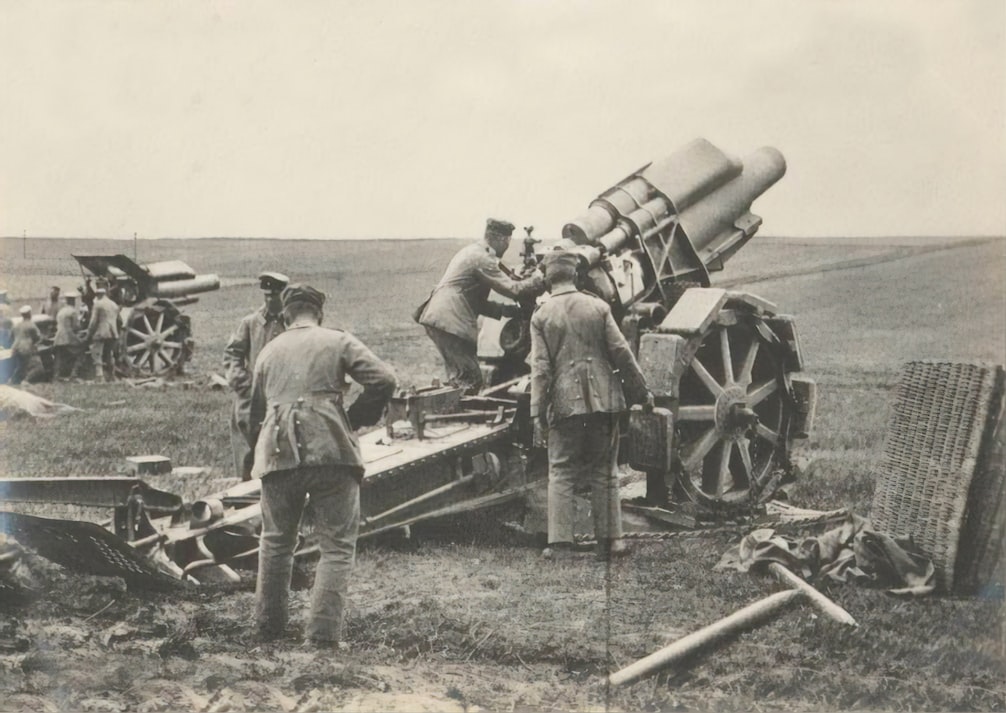
I am gearing up for #WyrdAndWonder next month by learning more about fantasy, and writers are the people who know the most. I have Samuel Hale with me today. Sam has been a writer, critiquer, beta reader, and editor since 2014, and is currently working on a Historical Fantasy novel set during the Third Punic War, titled The Lions of Carthage. Today we will focus mostly on Historical Fantasy with glimpses into Historical Fiction as well. You are going to learn so much, I promise! 🙂
Sam, welcome to the Creator’s Roulette.
What is the Historical Fantasy genre?
Really appreciate you having me along, Kriti. This conversation seems regrettably pertinent given the pandemic we find ourselves enduring.
So, full disclosure: what is considered Historical Fantasy is a hotly contested subject, so to hedge my literary bets, I’m going to provide what I believe it to be.
To me, HF (Historical Fantasy) is a sub-genre of Historical Fiction. HF is similar to Historical Fiction in that the story is told within the confines of the recorded historical/archaeological record, and utilizes historical figures in telling the story.
In my opinion, where the two genres split is that, in HF, we utilize devices such as magic, the supernatural, or/or technological elements to augment the setting, worldbuilding, and characters.
One example of HF could be a historically accurate portrayal of the English Civil War, but featuring magical or technological variations that complement the culture and setting. George R.R. Martin borrowed a number of story beats from that very war (also known as The War of the Roses) to create A Song of Ice and Fire, but it is not considered HF because it takes place in a “Second World” fantasy setting, which is a sub-genre of Speculative Fiction as well.

One key element of HF is the use of magic indicative of a culture’s folklore. This can include things like jinn from the Middle East, Scandenavian trolls, or a nine-tailed fox in your Chinese coming of age story.
In my opinion, a well known example of HF would be the Outlander series by Diana Gabaldon. It’s set in a historically accurate period of World War II, but the main character, Claire, is whisked away to 18th century Scotland via time travel. While both time periods draw from historically accurate settings, the means by which Claire is transported back in time is fantastical.
I think readers of HF really enjoy seeing how magic manifests in a specific era/culture. Well-written HF gives the reader a glimpse into how our ancestors perceived and truly believed in magic to explain things beyond their ken. And that makes sense.
People from five thousands years ago believed their gods to be real, their magic to be potent. I don’t think it’s hyperbolic to say that, until pretty recently, much of humanity believed the world to be full of magic, and that they lived in a fantastical kind of world. Science has done a lot to improve the quality of our lives, but it killed many of our gods, and diminished the world’s magic in the process.

Why do you write in Historical Fantasy?
Before answering your question, I just want to state right off the bat that I am not a certified historian. I have a Bachelor’s in Cultural Anthropology (with a minors in Art History), and a Master’s in Education. I am, like Dan Carlin is fond of saying, merely a “fan of history.” So whatever I say or think on the topic of history—real or otherwise—ought to be taken with a grain of salt.
Okay, so legal disclaimer aside, I write HF because, as captivating as worlds like Arrakis or Westeros are, the fact that our very own world features equally incredible topography, people, and events is (in my opinion) just too incredible to ignore. As a HF author, there’s always going to be some suspension of disbelief into my stories, but the nice thing is that I can trick the reader into doing a lot of the heavy lifting for me. This includes things like the way a language might sound, a character’s appearance based on location/ethnicity, as well as geographical details such as the Alps or the Gobi Desert.
When it comes to my style within HF however, I fall much more within the Grimdark style of storytelling. Grimdark emphasizes grittier settings, morally ambiguous characters, and a tendency toward plot & character arcs that subvert tropes (and end up becoming meta-tropes in the process). The Grimdark subgenre is one of the reasons I prefer writing HF set during classical antiquity, or the “ancient world” as it’s more commonly referred to. The time period tends to reveal the darker, less governed aspects of human nature, which I find fascinating.
It’s also where uniquely human pursuits such as philosophy, the implementation of laws, and discerning humanity’s place within the cosmos are well documented. But, for all their admirable qualities, people from the ancient world were notoriously barbarous; providing some of the most savagely juxtaposed things I’ve ever read about. You research enough about Rome, for exmaple, and end up getting a crash course in how to utilize incest as a political tool, what poisons are most effective for a quick (or agonizingly slow) death, and the highly malleable sexuality of historical figures; a sexuality which seems to have been white-washed from the United State’s education curriculum. I’m not saying something like sexuality is essential to understanding all of history, but if you read enough about Alexander the Great, you realize one’s sexual orientation can have massive repercussions across the geopolitical landscape.

Since I’m a Grimdark kind of guy, I just so happen to be a big military history fan too! As a result, when I’m contemplating story ideas, I tend to focus on what led to a major war, how it evolved, and the geopolitical fallout after the dust settled. It’s one of the reasons I chose the Third Punic War as the backdrop for my novel in progress.
The historic ripples from Rome completely and utterly destroying Carthage launched the Roman world into full hegemony over influential areas of the world such as the Greek city-states, Northern Africa (Egypt in particular), and the Levantine world. Rome’s dominion over each of these areas would wax and wane over the centuries, but the fall of Carthage was instrumental in establishing one of the most important republics (and eventual empires) in human history.
I feel it’s my responsibility to tell that story from the point of view of the vanquished, as I’ve always been a fan of the underdog, and have always been obsessed with how people react under extreme duress. As it turns out, a brutally efficient Roman siege of your capitol gets right to the meat of those stressors.
But, despite those darker elements on display, I’ve always loved reading and writing character-based stories. It’s important to me that my characters have agency, and that they push the plot forward, and not simply be pushed forward by it. As a result, I do my best to accurately represent the ancient peoples I’m writing about—warts and all, but with the same redeemable qualities people today possess. My goal has never been, nor will it ever be, to just throw pure barbarity in the readers’ face for the sake of shock value. I want my readers to relate to people thousands of years past, and connect all the dots leading back to themselves.
On Worldbuilding
But, like I mentioned above, a HUGE perk of writing Historical Fantasy is that much of the worldbuilding’s already been done for me. Worldbuilding is a major time-suck, and often subject to change as magic systems, political dynamics, and a fictional world’s history change through multiple drafts. I’m fortunate in that I have actual people such as Polybius and Herodotus dictating events in their verbose (if not long-winded) entirety, and that they’re primary sources for major historical events. It makes the job of fleshing out an intriguing world full of interesting people and events that much easier.
I can literally quote men and women from 2500 years ago and use it as exposition for my novel. I can look at a map, read up on ethnographic studies of people from that era, and plop all of that into my novel as exposition and worldbuilding. It’s an aspect of HF I truly appreciate, and that I never stop rubbing in the faces of my non-HF writer friends.
But, in my opinion, HF is all about the magic. Hard magic systems in particular (and no, I don’t have beef with soft systems. They’re just not my thing). This leads to some serious tinkering if I’m to find a way to make my magic system fit within the story’s historical context; something that is indicative of the culture it’s representing.
The tricky thing is that, unlike fictional worlds where the magic can be (but isn’t always) arbitrarily created, within HF, I’m operating with some fixed parameters. The history is (largely) agreed upon, so I can’t alter that. I have to create what I hope are interesting characters that can stand toe-to-toe with indomitable figures such as Alexander the Great’s mother, Olympias, or Hannibal Barca. And to top it off, I have to create a hard magic system that is indicative of the cultural backdrop.
So I start making magic.

On Magic Systems
I’ll use my novel’s setting as an example of how I go about making a specific magic system. First off, I know that the Carthaginians were polytheistic, and that the cultural exchange of gods in the ancient world occurred all the time. One way this occurred was when a conquering nation imposed their gods upon the conquered. Some of these armies demanded the worship of their gods, while others actually gave people the choice of who to worship or how to integrate new gods into their existing pantheon. A far less violent transaction of divinities also occured by way of trade or proselytization. Once people got ahold of this new god or goddess, they would oftentimes put their own unique cultural stamp on the deity. It’s the same reason Jesus or the Buddha tends to look like the people who adopt them throughout the world. So, if I were to integrate Apollo into the Carthaginian pantheon, I need to make sure it’s accurate to how the Carthaginians idolized and perceived him. He’s a Carthaginian Apollo. Not a Greek or Roman Apollo.
After I’ve figured out a culture’s interpretation of a god, gods, or an entire pantheon, then it’s time to sit down and devise a magic system specific to the ethnographic setting. This process, to me, always feels like a puzzle with two types of pieces.
The first kind of puzzle piece is like the kind we’ve all spent hours pouring over on rainy days. It has multiple gaps and joints that only connect with an inverted matching piece. No amount of jamming it down with your thumb is going to make it snug. This fixed piece is the integration of my magic system into the fixed historical parameters I mentioned earlier. And, because it’s a fixed thing, I have to devise a way to integrate a magic system that complements the setting, and that is indicative of how that society functioned. This includes everything from monumental architecture and geopolitics, right down to how people baked their bread and how the ingredients were transported to and from Carthage.
Additionally I need to decide how the magic system will factor into my viewpoint characters’ decisions, how it will shape internal/external conflict, as well as the A and B plot. Does my main character, fictional or real, have a history with magic that helps explain their motivations?
Another question is how to integrate a magic system atop important events that maintains historical accuracy while demonstrating its effects and potential.
Hannibal still crosses the Alps, but he also calls upon a Carthaginian god to assist in the army’s safe passage through treacherous mountain passes. This example stays true to history, establishes a god’s reach and agency within the physical world, and highlights the magic systems potential and potency.
Those rigid puzzle pieces are serious brain-twisters. I’ll spend hours mulling them over, have a eureka moment, then scrap everything because I found out my idea wasn’t consistent with the recorded histories upon further research. But when those pieces finally snap together, it’s one of the most fulfilling things I’ve ever experienced. Any writer who’s experienced that snap knows what I’m talking about.
The second type of puzzle piece is (blissfully) malleable and can be thumbed into place with similar pieces, and as it turns out, is able to augment those fixed pieces. These kinds of pieces allow me to take fixed subjects such as mythological figures from antiquity, and decide how I want to portray them.
Quick Workshop
So, let’s say I’m writing a Historical Fantasy novel in which the Greek pantheon actually exists. From the many gods we have to choose from, for this example, let’s use Zeus and stay true to his mythological description (excluding the part about him being a serial rapist). However, instead of Zeus being a giant, bearded man, instead he inhabits any area where an electrical charge is present. To add some limitations to our magic system, we’ll also say that his influence (such as affecting peoples’ decision, spying, and doing pervy Zeus stuff) only stretches as far as the temples dedicated to Zeus.

Here, we’ve just created the bones of a HF magic system that helps the reader quantify and wrap their head around what are pretty ambiguous aspects of the ancient world.
In our story, we can have real and fictional philosophers and mathematicians postulate and hypothesize as to how Zeus seems to be everywhere and nowhere all at once. This would grant Zeus a kind of Big Brother omniscience and direct/indirect influence over peoples’ behavior no matter where they were. That’s great because it remains true to how people behaved during that time period since many truly believed Zeus to be more or less omniscient. In this way, we’re still portraying magic, real or fake, as having an influence on an ancient society (which is great for worldbuilding).
You could write an entire novel about how an intrepid scientist, shunned by her more traditional peers, goes on to prove that Zeus is in the very air, all around us, and that she has devised a way to nullify his dominion over the Greek city-states. We introduce conflict by asking questions important to the people of the time. Questions that highlight Greek values and beliefs. Do the people love or hate that Zeus sees their every move? What kind of political dynamics would take place should Zeus be rendered inert? Would the remaining Greek pantheon take revenge on the people responsible for his demise, or would they take advantage of the power vacuum to elevate their station within the Greek pantheon?
And what kind of internal/external conflict might our protagonist encounter, and does she want to live in a world without Zeus’ guidance? We now have an A and B plot that’s historically accurate, and that is augmented by fantastical elements. We have Historical Fantasy.
That novel idea’s a freebie for anyone who wants it, by the way.
And that’s the fun of a magic system that stands atop the shoulders of historical giants: you get to retell ancient stories with your own unique twist.
How is Historical Fantasy different from Historical Fiction?
So it’s important to state right off the bat that there are folks who don’t see any difference between the two genres. To a certain degree, I agree with this sentiment. If you think about what fiction is, it’s the use of prose to create imaginary events and people. That’s a pretty large umbrella, and I somewhat agree with the reasoning there. Having said that, I see there being enough distinguishing elements between the two genres to warrant splitting them into separate literary categories.
So, the difference, in my unqualified opinion, is small but important: HF tells a historically accurate story, but that uses magic and/or technology to augment what is being told. It also tells the story from the point of view of actual historical figures and/or fictitious characters to give the reader a wholistic view of the era, events, and the overall setting.
Historical Fiction, like HF, also uses historically accurate settings and events, and uses actual and fictitious characters to highlight the story being told from various points of view. At the risk of sounding reductionist, I’d say that Historical Fiction (if we’re sticking with my distinction between the two genres) is merely the telling of historical events and eras without the fantastical elements.
An example of an HF story (and I’ll probably be hung, drawn, and quartered for using this example) is the 2004 film Troy starring Eric Bana and Brad Pitt. I believe this falls within the purview of HF because it draws upon archaeological and historical records to depict a war that did actually take place over the course of years, and that portrays the demi-god, Achilles, as being an actual person. While there’s no magic on display, the premise is fantastical and draws upon mythology to enhance the story.
If we’re sticking to films, an example of Historical Fiction is All Quiet on the Western Front. Even though the novel (and films) is semi-autobiographical, it depicts actual German troop deployments, set piece battles, and the horrors inherent to trench warfare. In this instance, the viewer follows a fictional character through a historically accurate setting that depicts history from a fictional, yet realistic point of view, and without the use of fantastical elements.

Despite genre nuances, HF and Historical Fiction—assuming the writer’s done their homework—can function as compelling biographies, history lessons, and downright enjoyable stories. It’s a win-win if you ask me.
However, if you’re the kind of person who wants the best of both worlds, then I recommend reading Alternative History novels.
A great writer of AH is Harry Turtledove who actually possesses a Ph.D in History. One of his novels, Days of Infamy, supposes that, during the bombing of Pearl Harbour, the Japanese also invaded and occupied the Hawaiian islands. Turtledove’s stories are meticulously researched, historically accurate, and examine pivotal events by way of diverse viewpoint characters. Characters such as Japanese soldier, a Hawaiian-Japanese fisherman experiencing racism by his invading half-brothers, or a woman forced into one of the pleasure houses put in place by the Japanese. There’s nothing fantastical or technologically different in the Days of Infamy series, but I highly recommend it.
What I like about Turtledove is that he starts each series with a simple “what if?” premise, and extrapolates from there. However, he does have a series where Earth is invaded by lizard aliens during WWII, which is decidedly sci-fi (the aliens become addicted to ginger. Seriously). Despite the campy premise, Turtledove’s portrayal of WWII is totally accurate right up until the invaders arrive, and even then, the weapons, political dynamics, and historical figures used as viewpoint characters are accurately described, and used to great effect.
What are some well known examples of Historical Fantasy novels? Are they usually based in a new world or inspired by our own, like your writing?
So a classic example of HF based in our own world is Jonathan Strange & Mr. Norrell by Susanna Clarke. Clark really taps into the tone and tenor of early 1800’s England speech, decorum, and the setting while injecting a whimsical voice into her characters. The magic system is analyzed and taken apart in the same way science at that time was. Reading it, you can imagine a bunch of mustached Englishmen in a surgeon’s auditorium rubbing their chins as an entrepid scholar espouses the potentials of magic right alongside the health benefits of trephination and blood letting. It’s a classic and Clark does her research to make sure the fantasy and historical setting are perfectly interwoven.


Another solid entry is The Shard of Heaven by Micheal Livingston which (like most great HF) examines the repercussions of a major historical actor’s death. In Livingston’s novel, it’s the death of Julius Caesar. The characters utilized are historically accurate, and include major players such as Juba, Cleopatra, and Octavian. The fantastical elements come in the form of the Roman pantheon, and the magical Trident of Poseidon which is capable of immense destructive power.
What kind of research do you put into your Historical Fantasy novels?
So I do my best to strike a balance.
I absolutely want to stay true to the source material, especially when it’s a primary source. I, like actual, qualified historians, take secondarily sourced documents with a sizeable grain of salt. I’ll use my work in progress as an example. I include trade routes within the Mediterenean that allow goods to flow from Spain, to Carthage, to the Levant, and so on.
Also, I have to make sure I understand the life of the average Carthaginian, and the god(s) they worshipped. I need to make sure I fully understand the tense relationship Hannibal Barca had with the Romans, the Carthaginians (who were his own people), as well as how the previous two Punic Wars lead to the destruction of Carthage during the third and final war.
All of that stuff is essential, and I do my research, consult with historians, and make sure it’s not anecdotally sourced data from armchair historians (because aliens).
In hindsight, I’m pretty lucky to have gone through such a rigorous Bachelor’s program in Anthropology, and that my professors beat me over the head with determining the viability of cultural relativism, historical trends & forces, and examining well known ethnographic studies. All of that has lent itself to my research process.
That and a TON of podcasts.
Conversely, I don’t want my writing to be so heavily swayed by historical fact that it no longer resembles the story I want to tell. A great Buddhist saying I often paraphrase goes something like, “never let facts get in the way of truth.” I love that saying as it sums up my ethos on how to deliver effective HF. I stick to the facts, but I never let the story drown within the details or go off into the weeds. I avoid info-dumps, and instead, breadcrumb relevant history with the assumption that my reader is totally foreign to the world I’m introducing them to. And I never let the nitty-gritty stuff get in the way of what’s most important: the people. The characters.
But, when you’re researching for your HF novel, you have to be aware of when fact trapeses into fiction. You have to realize that many times, history is being written by the conquerors. People with agendas and legacies they’d like to preserve. Records they hope will always portray them as having been magnanimous, remorseless, or any number of qualities a leader or nation values. Of course, sometimes your source is just an awful historian.
In other words, you have to watch out for unreliable narrators.
Narrators like Cato the Elder. Cato was a notorious Roman statesman who had a real flair for showmanship (look up how he shifted Roman attitudes toward invading Carthage with just a fig). He absolutely had a grudge toward Carthage, and went out of his way to defame Carthage’s character whenever possible. He even made it a point to end every speech, even if it had nothing to do with Rome’s Mediterranean rival, by stating, “Carthage must be destroyed.” So watch out for unreliable narrators. Or old guys with figs tucked away in their togas.
Having said that, unreliable historical actors such as Cato could, in the hands of a skilled writer, be utilized to great effect.
For writers looking for more technical advice on research, here’s what I’ve got:
Stick to the historical beats and feats of what happened as though they’re the outline for your novel. Map out all the major events and see how you can interweave your own story into a single, coherent tapestry. Like I mentioned above, some of the pieces have only one other matching piece, while others can be finagled. Again, very rewarding. The kind of rewarding that causes a grown man to fist pump at his desk once he puts the whole puzzle together (not that I’ve ever done that).
Second, do what a lot of songwriters do which is to start from the final set of lyrics and write or outline the story backwards.
For example, end your story with the Russian Revolution of 1917, and the unceremonious execution of the Romanovs.
What kinds of magic systems could you create in this scenario? Maybe one powered by the Romanovs’ royal blood? A monarchical magic system versus a populist system? Was there magic-fueled technology that was instrumental in the proletariat’s overcoming the bourgeois, and if so, who would be a powerful viewpoint character to take part in the Romanovs’ downfall? Lenin, Stalin, Trotsky, a purely fictitious character close to the action? Maybe the fall of the Romanovs is from the point of view of Rasputin; a man who was purported to actually have had magical powers. Powers which were said to be instrumental in saving one of the Romanov children that had hemophilia. Maybe Rasputin uses blood magic?
History is just waiting to be told with a fresh take, and a fantastical mind willing to adapt to the tenor of the times.
If someone wanted to write Historical Fantasy, what are two things they should know about the genre going in?
I’d say that if you’re the kind of person who’s deciding to get into Historical Fantasy, you need to know that you’re going to make mistakes. You just can’t make everyone happy.
Historians are a notoriously fickle bunch and that strain of scrutiny translates all the way into the world of HF. You are going to make mistakes or, at least, mistakes according to someone else’s understanding of the historical events, era, or people you’re writing about. There’s just so much information out there and historians, being the detectives they are, often disagree on how that mound of evidence should be interpreted. It’s pretty common for historians to take jabs at one another over minor & major interpretations, and that can go on for years, even decades. It can get pretty petty at times which is why I recommend sticking to more commonly accepted interpretations of history.
Another thing is that, within HF, the author gets a couple of freebies (notice I didn’t say “a lot”, just a few). Freebies are artistic license to alter this and that to make things, in essence, more convenient to the telling of your story.
I recommend keeping most of your freebies small. Things like the distance between two cities being one example. I like to tell my stories over a short period of time, so I decided to have Carthage and a neighboring city be a bit closer than they actually were for the sake of streamlining things. It’s not an egregious sin, and I haven’t lost any sleep over it.
It’s when you get into things that, by my standards, are sacrosanct, that you’re going to really have to sit down and decide how far you want to go down the rabbit hole. Altering where a historical figure was despite knowing they were somewhere else entirely might push some HF fans a bit too far. It’s a fine line and one that you’re constantly calibrating as your outline or story progresses.
Again, this is why I highly recommend constructing an outline in tandem with the historical timeline. From there, you can decide if a slight deviation is acceptable, or if it’s one of those fixed puzzle pieces that burns your finger when you touch it.
The whole process used to leave me feeling unqualified and out of my element, but as I’ve done more research and mulled over those puzzle pieces, I find that my ideas are becoming easier and easier to weave into the historical record. It’s exciting as all hell once you get the hang of it.
Regardless of what you decide to do within Historical Fantasy, be prepared to do a lot of research, make plenty of mistakes, and have a great time wading through the tides of history. There are so many factual events, people, and moments gathering dust, which means there’s a plethora of amazing stories yet to be told.
You just have to be willing to make history.
In your opinion, what historical figure would make for a compelling viewpoint character?
I hope you enjoyed this in-depth post about Historical Fantasy. I was thrilled to get a deep dive into the worldbuilding and magic system aspects of the genre.
Want to connect with Sam? Find him on Twitter and Facebook. As an author and editor at Inked in Gray, Sam recommends checking out this awesome indie publisher on Twitter, Facebook and their website.

Banner Photo by Yeshi Kangrang on Unsplash
Image of warrior on Unsplash
Image of war grounds on Unsplash
Image of old building with pillars on Unsplash(1) and Unsplash(2).

What a fascinating interview!
I am glad you enjoyed it, Chris! 🙂